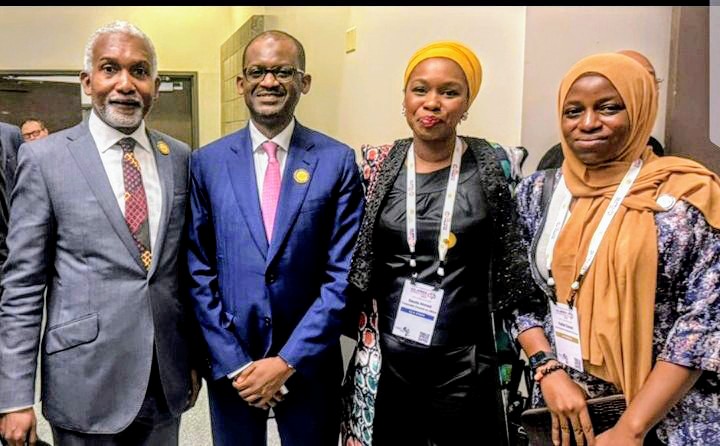
TGI Group, a leading conglomerate in Africa’s agricultural sector, reiterated its commitment to sustainable agricultural development at the recently held 16th U.S.-Africa Business Summit. The event, attended by over 1,500 public and private sector executives from across the continents, emphasized strategic collaborations for sustainable success in various sectors, including agriculture.
Farouk Gumel, Executive Director and Executive Vice Chairman (Africa) of TGI Group, participated as a panellist during a session themed ‘From Food Insecurity to Thriving Agribusinesses: The Case for a U.S. Africa Strategic Agribusiness Partnership.’ Emphasizing TGI’s comprehensive approach, Gumel highlighted the company’s involvement in the entire value chain, from the seed to the final consumer. “At TGI, we engage in every aspect of the value chain, from seed multiplication to the dining table. This is because we adopt a problem-solving approach to our business model,” stated Gumel.
He stressed TGI’s dedication to understanding local communities and cultural nuances, ensuring shared prosperity and sustainability. “While we are involved in seeds, fertilisers and crop protection inputs, we do not engage in land ownership. We adopt a community-centric approach, recognizing cultural sensitivities in rural areas. When partnering with communities, we provide inputs while they undertake cultivation. Upon harvest, they have the option to sell to us or others, ensuring a mutually beneficial relationship. Even if they choose to sell to the open market, albeit rarely, we will still get it from the local aggregator,” Gumel explained.
Discussing Nigeria’s agricultural policies, Gumel praised the country’s commitment to employment and community empowerment. “Nigeria, often misunderstood globally, boasts the continent’s most robust agricultural policy,” he remarked.
In another panel session themed, ‘Future of U.S.-Africa and Trade Investment: AGOA and beyond,’ Gumel further called for an upgrade of the African Growth and Opportunity Act (AGOA) and fairness in free trade in Africa. He said, “Since the AGOA legislation was renewed almost a decade ago, the dynamics of global trade has changed. The uniqueness of no duty in exporting to the U.S. no longer exist because other big players like China, India and the U.A.E. have come into Africa offering the same benefits if not better than what we get from AGOA. To upgrade AGOA, there is a need to see what the other players are doing to make export seamless.”
On the discussion on free trade, Gumel said, “Free trade is not new in Africa. It has always existed for hundreds of years, but what does not exist is fairness in cross-border trading. Just like the E.U., we need to have an African Ideology where we look inward to produce and export with Africa.”
In addition to its advocacy efforts, TGI Group has actively implemented initiatives aimed at driving sustainable development across Africa. Notable among these is the Argungu Outgrower Expansion Programme, a collaboration with the USAID-funded West Africa Trade and Investment Hub, aimed at boosting rice production in Nigeria.
With operations spanning over 15 countries and a diverse portfolio of products, TGI Group remains committed to creating a positive economic, environmental, and social impact. Leveraging locally sourced raw materials and state-of-the-art manufacturing facilities, the company continues to forge sustainable business partnerships aligned with the goals of the U.S.-Africa Business Summit.









